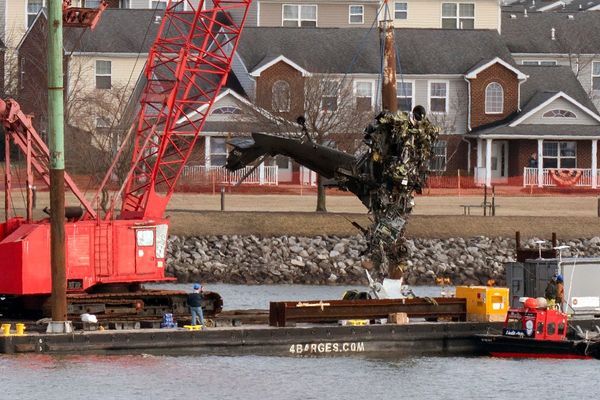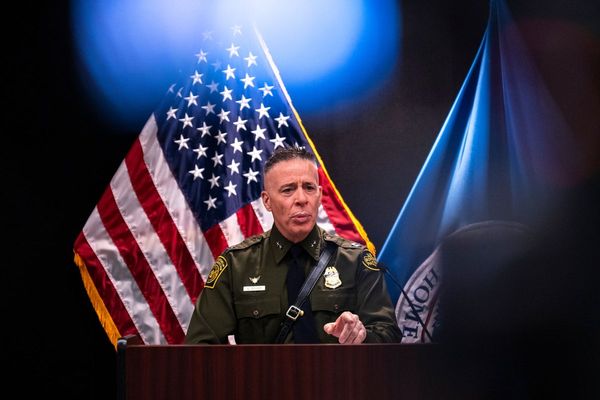Knife crime is not just a statistic, it’s a national epidemic. It is an unacceptable reality and a devastating social issue that destroys families and communities across the UK. Every week, I read headline after headline of another teenage killing, where further teenagers are being sentenced to a lifetime in prison. It’s harrowing. Why are we living in a society where this has become normal, commonplace?
My play, The Chaos That Has Been and Will No Doubt Return, comes to Southwark Playhouse this September before touring the UK in October and November. I wrote this play as I was terrified by this issue and also felt a deep passion for needing to platform a story that spoke about this. I kept asking myself why a community might be surrounded by knife violence.
I grew up in Luton during the late 90’s into the early 00’s. This was in the wake of the financial crash, where Luton, and many other working-class towns, were suffering under a government declared austerity – no jobs, no houses, a struggle for survival. Everyone was angry and anger always breeds violence. We were surrounded by it.
Youth services were shattered and youth employment was at an all-time low. At the same time the rise in gang culture and county lines issues were plaguing the town. It was so easy for young people to feel vulnerable, unsafe and this pushes them towards seeking security or community, which gangs would ‘promise them’.
People were abandoned and fearful, so the idea of protecting yourself became the number one priority, whether gang related or not, and sadly the common misconception with protection – is carrying a knife. Even though, statistically a person carrying a knife is actually more likely to be injured by it than someone without a knife. It all instils fear.
I’ve had a knife drawn on me. A boy I grew up with was stabbed over ten times on a night out. I’ve seen people chased with machetes and witnessed one fall out of a friend’s bag during class at school. I’ve since spoken with mothers who have lost their children to a stabbing. There was no support. The government had abandoned those most in need.
So, the play I wrote became an interrogation of the repression and suffocation on working class towns like Luton and how that effects young people. When there are no schemes to protect people, it depicts how much a community suffers.
All this was happening fifteen years ago; has anything changed?
The simple answer is no – the situation is worse. Over the past ten years, the number of teenagers killed with a knife or sharp object has increased by a shocking 240%. The murders of boys under the age of 16 has also reached a 10 year high, now at a staggering 300% increase compared to a decade ago and the number of girls under the age of 16 murdered with a knife has doubled in the last year alone. Knife-enabled crime totalled 54,587 offences in the year ending December 2024.
Even Sir Mark Rowley, the Met police commissioner, has warned of the £450 million funding gap for knife crime intervention and said that if there isn’t more government backing, then rates of these crimes could only rise. And do any of the above figures tell you that the government has control of this?
No. We are in a perpetual cycle of being let down. A perpetual cycle of feeling abandoned. We need change.
So, it is taking amazing people, like The Ben Kinsella Trust (who I have partnered with on this play), or Beds Veru (who supported me in the development of my play), to carry the responsibility for education and intervention and I needed to be a part of it.
My play is trying to spark urgent discourse but also look to change the narrative. I didn’t want to perpetuate a story where things have to end tragically. I strongly believe that the young people that commit these crimes are not necessarily born this way. They are born into an environment that teaches them that this is normal and that is what needs to change. There is a world, with the right support, where none of this needs to happen.
So Chaos tries to use hope as a radical art. It follows two 16-year-old boys as they chase the highs of youth against a backdrop of systemic neglect, venturing towards the biggest house party of their lives. It is a raw real-time collision of friendship and survival – exploring class, and identity, but set to a soundtrack of noughties bangers with a cracking house party that pulses round the corner.
With Ben Kinsella Trust, we are running a theatre-infused knife crime intervention programme looking to benefit a thousand young people in the UK.
Young people are brought in to see the play before workshopping material with the help of a facilitator and a drama therapist. We give them an opportunity to rewrite the ending and ask them how do we prevent this from happening?
It’s about empowering young people, rather than lecturing them. It’s giving them a space to explore the events, so that if they ever experience something similar in real life, they can identify what’s happening and try to avoid it.
This is what they need. This is what is lacking. Ben Kinsella have proven that prevention works. That through education and early intervention we can break the cycle of violence. But none of us can do it alone. We need collective responsibility and government backing.
If you read this and want to support us, we are actively looking for people to help fund bring young people to our show and take part in our intervention work. Sadly, these groups lack their own funding, so any support people can provide will go towards life changing work.
Sam Edmunds is artistic director at Chalk Line Theatre Company. Contact chalklinetheatre@gmail.com or see what you can do locally to protect young people. The Chaos That Has Been and No Doubt Will Return can be booked here.







